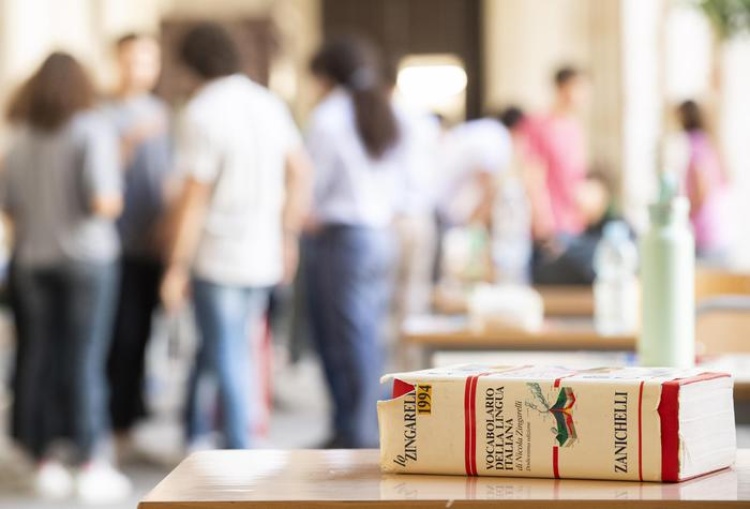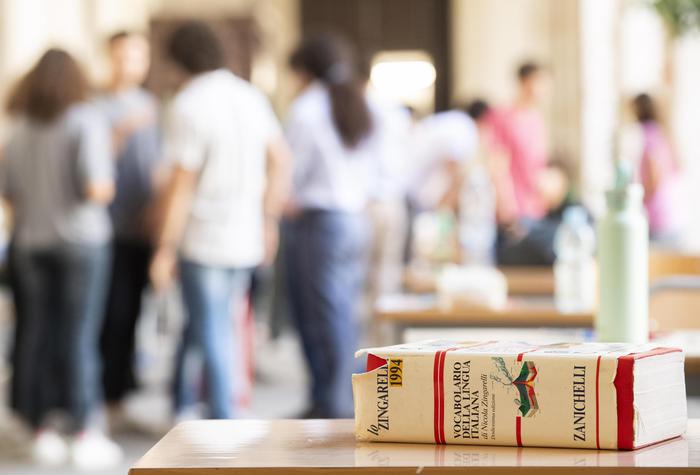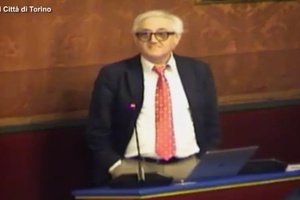To mark this special occasion, we’ve picked five Italian words or expressions that will help you fit in with the locals.
Try to use them as much as possible next week!
Boh
Let’s kick things off with the smallest word on the list... which some would argue isn’t even a proper word!
It’s incredible how just one little single-syllable, three-letter word can sum up a feeling so perfectly.
This word is used when you just don’t know the answer to something.
How many types of pasta exist? Boh. Who wouldn’t want to go to Italy? Boh. How did Berlusconi become prime minister? Boh!

According to the dictionary, Italians have been making this peculiar sound since around 1840 to express “doubt, indifference or reticence”.
Don’t be fooled by the spelling: it’s not pronounced like “oh” or “so” in English.
Instead, the vowel is shorter: more of a “buh”.
Italians often say this word while thrusting their chin forward and up, with their lips pulled down, for emphasis.
– Dov’è Sara?
– Boh! Non l’ho vista.
– Where’s Sara?
– Dunno! I haven’t seen her.
Magari
Italians use this word all the time and in many different contexts, but English speakers often struggle to understand its exact meaning.
Pronounced ma-GA-ri, this popular expression derives from a Greek word meaning “blessed” or “happy”, which is a clue to its first and perhaps most common meaning: “I hope so!”

– Vai in vacanza quest’anno?
– Magari!
– Are you going on holidays this year?
– I hope so!
Of course, some wishes are less likely to come true than others.
You can also use magari to refer to a desire which isn’t very realistic.
– Compri una casa in Italia?
– Magari!
– Are you buying a house in Italy?
– I wish!
Magari can also be used to stress just how much you want something that’s been offered to you.
– Vuoi un piatto di pasta?
– Magari! Grazie!
– Would you like a plate of pasta?
– I’d love one, thanks!
As if it didn’t have enough meanings already, magari can also translate to a simple, objective “maybe”.
– Magari ci vediamo dopo.
– Maybe we’ll catch up later.
Often there’s no way to tell from the sentence structure which magari is being used – you just have to rely on context and tone.
Mannaggia
With two sets of double consonants, this word has a whole lot of attitude.
Italians use this exclamation when they’re angry, impatient, frustrated or disappointed.
It could be considered as Italy’s answer to “Damn!”

– Mannaggia, sono in ritardo!
– Damn, I’m late!
While these days it’s a pretty gentle expression, its origins are a little more aggressive.
Linguists believe the phrase originated in southern Italy as either male ne abbia, or in some southern dialects, aggia, which translates roughly as “cursed be”.
Another theory is that mannaggia is a contraction of malanno aggia, or “have a bad year”.
Ti voglio bene
In Italian, there are more ways than one to say “I love you”.
While those three words in English can be used with friends, family and lovers alike, it’s a little more complicated in Italian.

The literal translation, ti amo, is used in a romantic context.
However, another expression is used for pretty much everyone else: ti voglio bene.
Literally meaning “I want good things for you”, this expression is far more widely used than ti amo.
Basically, the difference between ti amo and ti voglio bene represents the difference between loving or caring about someone and being in love with them.
– Ciao mamma, ti voglio bene.
– Bye mum, I love you.
OR
– Ti amo... un giorno ti sposerò.
– I love you... I’ll marry you one day.
Quattro gatti
Italians love to include animals in expressions and sayings... and this is perhaps one of the quirkiest examples.
Quattro gatti literally translates to “four cats”, and if they show up in Italian, it means very few others have.
The expression means “barely anyone”.

– Alla festa c’erano quattro gatti.
– There was hardly anyone at the party.












